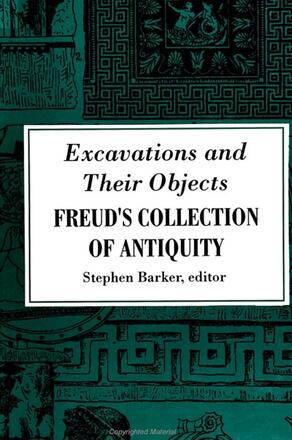
Excavations and Their Objects
Freud's Collection of Antiquity
Alternative formats available from:
This is a collection of essays concerned with the thematic implications of Freud's deep interest in the art objects in his collection of antiquity.
Description
Sigmund Freud collected over two thousand pieces of art, ranging from statuary to jars to seal rings to painted mummy bandages. He prized this collection as much as anything else he owned, seeing these works as pivotal exempla of the great civilizations out of which the best of the contemporary world had been fashioned, with his collection as a personal "School of Athens" by which that great antiquity might be accessed. The essays in this book focus on various aspects of Freud as a collector and aesthete, and on the thematic and theoretical implications of his tastes and passions for art.
Stephen Barker is Associate Professor and Chair of the Department of Drama and Director of the School of Fine Arts Program in Interdisciplinary Studies at the University of California, Irvine. He is the author of Autoaesthetics: Strategies of the Self After Nietzsche.
Reviews
"Freud's collection, as well as the act of collecting in itself, are of very great significance. It deepens our understanding of one of the most influential figures of the twentieth century. It also adds to our understanding of Freud as representative of his time and as one who, in many ways, transcended it. Through understanding the role of art in Freud's life, we can further appreciate the roles it plays in our lives. " — Robert A. Pois, University of Colorado, Boulder
"These essays continue and extend the investigation of the theme of archaeology in Freud, of the relation between psychoanalysis and archaeology in Freud (and after Freud in Lacan), and of the collecting of antiquities (the 'psychology of collecting,' the collector's selectivity, the implications of such selectivity). Written by scholars from different fields, this book brings a variety of approaches to the question of archaeology and collecting. The topic is very important and branches out in a number of fields of study: it is significant to the different fields of psychoanalysis, art history and criticism, history, and most importantly it is significant to the intersection of these different fields. " — Anne Tomiche, State University of New York at Buffalo